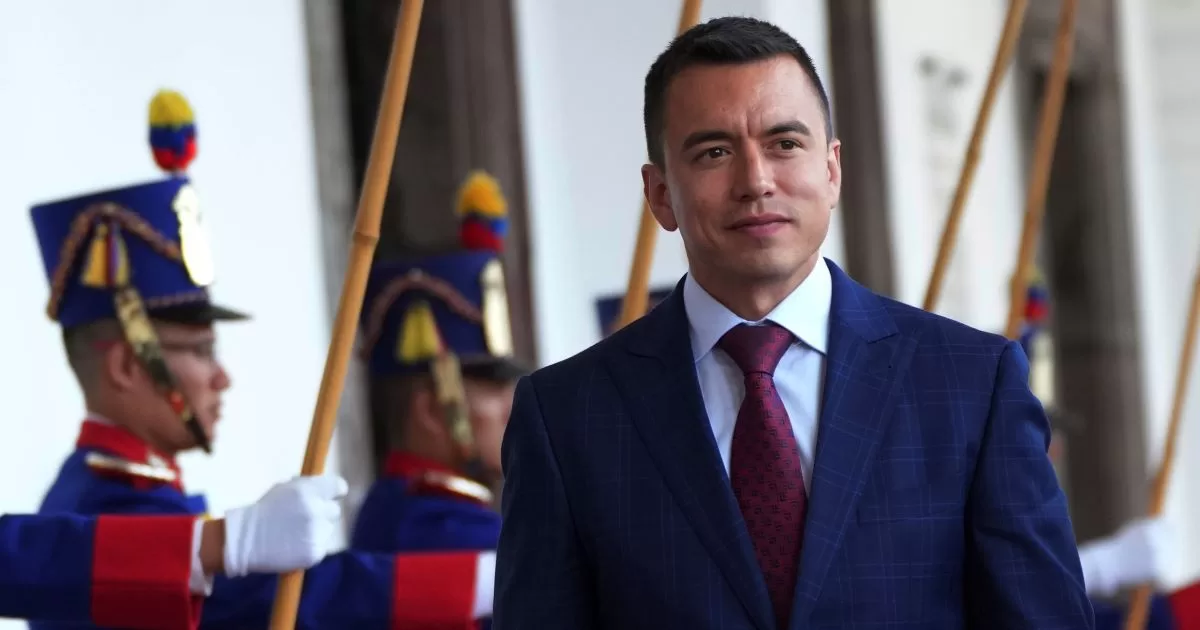The Davidian sect complex, in 1993 / AFP
Moses Ávila
Days after a deadly confrontation between a religious sect and federal agents in Waco, Texas, attorney Dick DeGuerin received a call that 30 years ago put in his hands the “biggest case” of his career to date, and one that shocked the United States. Joined. She was the mother of the Branch Davidian sect leader, David Koresh, to ask him to defend her son.
After negotiations, on March 31, this lawyer was the first to cross the police cordon and enter the Davidian compound, Mount Carmel, to talk with the entrenched.
DeGuerin found Koresh wounded in the wrist and torso and treated with holistic medicine by his followers. He was confident that he would reach an agreement for his surrender.
Three decades later, from his Houston offices where he keeps the case files, the 82-year-old lawyer remains convinced that what ended tragically on April 19, 1993 -after a 51-day siege- could have ended in peace and without more than 70 people dying.
His account strikes a chord in the United States, a polarized country where some see Waco as a symbol of government overreach.
Memorial
Today, a memorial where the events occurred, run by New Davidians, draws hundreds of visitors a month. DeGuerin says that when he took on the case “he didn’t know the magnitude,” but it was clear to him that “the world was watching.” “He had handled some big cases, but nothing like this,” he adds.
The Branch Davidians were founded in 1959 as a splinter of the Seventh-day Adventist Church. They believed in the imminent return of Jesus, and Koresh emerged as their charismatic leader in the 1980s.
In 1993, the Bureau of Alcohol, Tobacco, Firearms and Explosives (ATF) accused the group of storing weapons and obtained an arrest warrant for Koresh and a search warrant for the compound, where there were allegations of child abuse.
On February 28, during the raid, a shootout broke out, killing four federal agents and at least six Davidians.
The FBI then besieged the place, starting the “Waco siege”, which has inspired series and documentaries. In late March, when DeGuerin went in to see Koresh, the FBI drove him near the compound in the back of an armored vehicle. “They told me: ‘Would you like a bulletproof vest?’ I said, ‘No, I’m not afraid of Davidians. But I don’t want to get shot by FBI snipers.’”
He confesses that he did not know what to expect, but that he found Koresh, 33, intelligent, eloquent, but “very angry” about the siege by the FBI and ATF.
DeGuerin understood that his mission was to get Koresh out of the compound and into court “without anyone else dying.” “I told him that the law is the law and that he had to obey the law even though it might conflict with his religious beliefs. He understood it, ”he recalls.
In parallel, the lawyer was negotiating an agreement with the Texas Rangers, in charge of the complex’s security, for Koresh’s surrender.
As negotiations progressed, DeGuerin returned to the compound with attorney Jack Zimmerman, who was representing another cult member. Patience was running out among federal agents. “There were the negotiators who wanted it to end peacefully. And then the tactical people who just wanted to rush in and kill anybody and arrest them,” DeGuerin considers. “The tactical people won.”
When he thought he already had an agreement, he saw on television how the feds started actions in the compound. He tried to go back. “We don’t need you anymore,” an FBI agent told him over the phone.
That day, April 19, FBI agents in armored vehicles stormed the compound and fired tear gas. The causes of the subsequent fire are still disputed, but the complex burned to the ground, claiming more than 70 lives, including Koresh and about 20 children.
Investigations cleared law enforcement of wrongdoing, but Waco became a rallying cry for Americans accusing their government of abuse of authority, spurring the growth of militias in the country.
In 1995, on the second anniversary, Timothy McVeigh, who had driven to Waco to witness the siege, carried out a bombing in Oklahoma City that killed 168 people. For DeGuerin, 30 years later, the lessons from Waco are clear. Federal agents had become convinced that Koresh “was tricking them again” and that he would not give up. “They didn’t wait. I think if they had waited, it would have ended in peace. But it was not like that”. (AFP)


